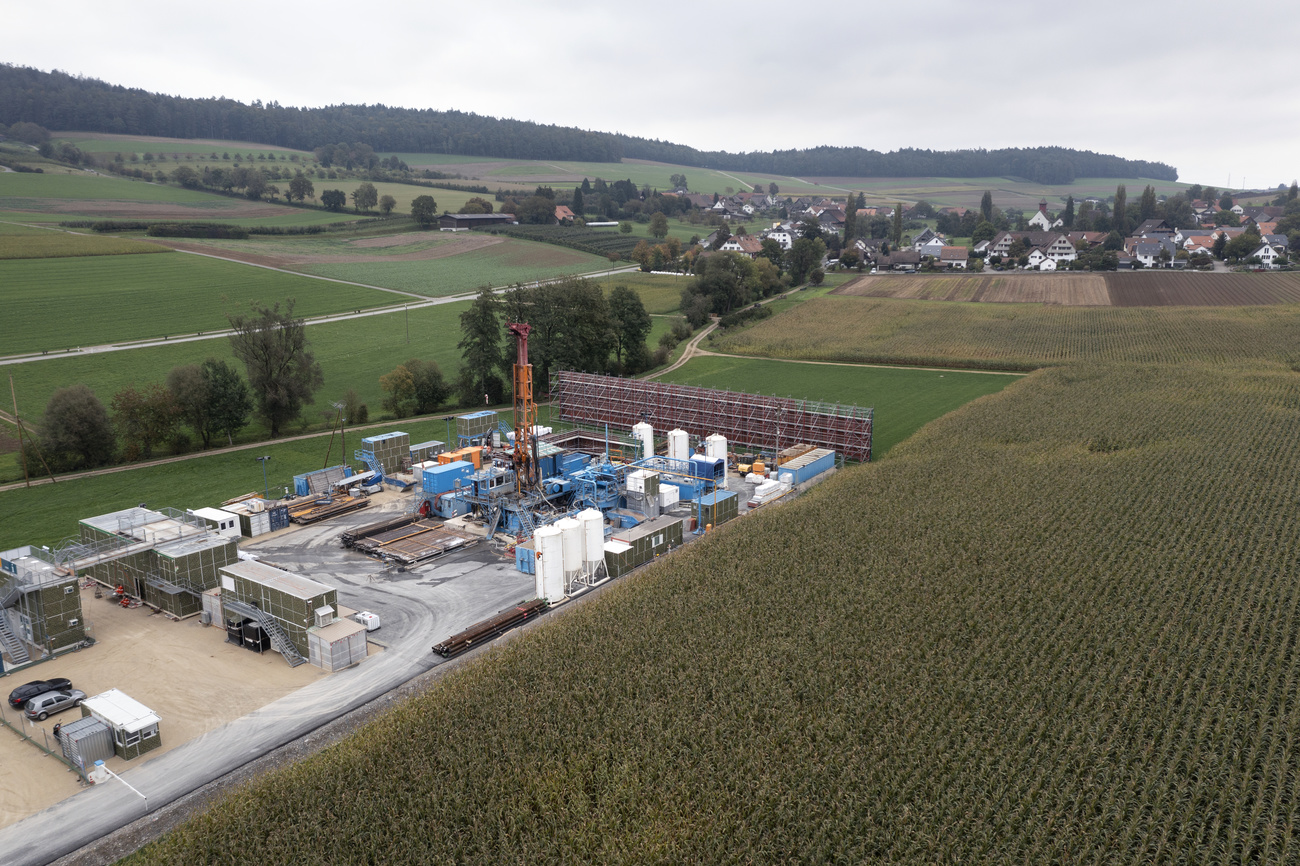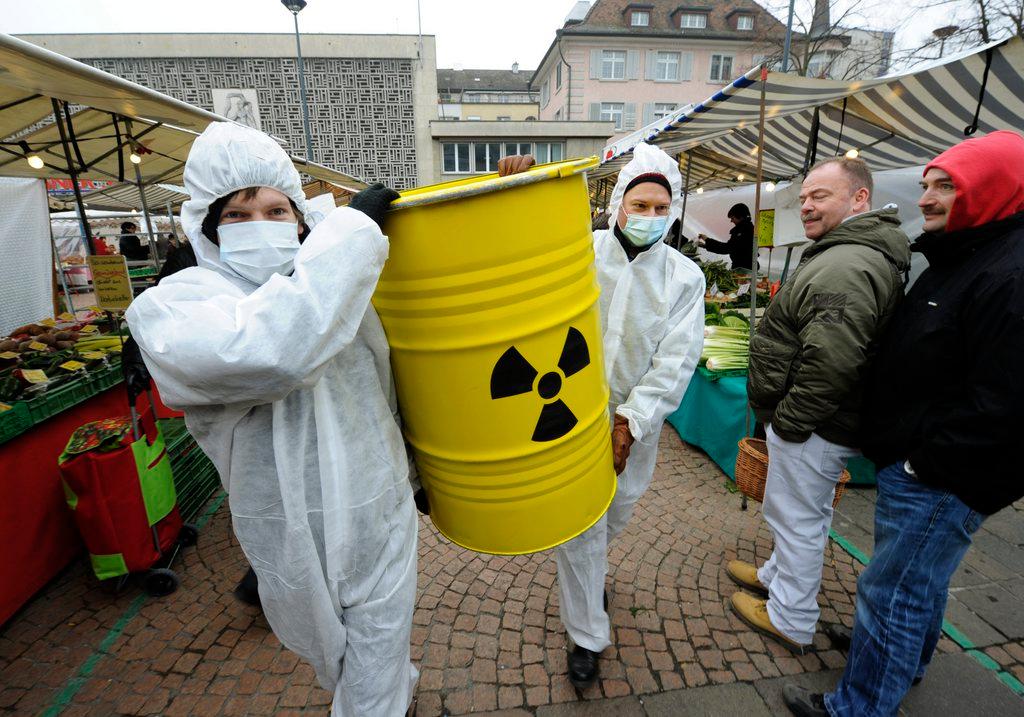
Site in northern Switzerland chosen for nuclear waste storage

A deep geological repository for radioactive waste will be built in the northern Lägern region straddling cantons Aargau and Zurich, not far from the German border, the Swiss Federal Office of Energy (BFE) said on Saturday.
The selection was confirmed to the Keystone-SDA news agency by BFE spokesperson Marianne Zünd . The fuel conditioning facility will be built near the existing central interim storage facility in Würenlingen, canton Aargau, she said.
Until now, radioactive waste in Switzerland has been held in interim storage facilities and at nuclear power plants. Experts worldwide say that a deep geological repository represents the safest solution for storing nuclear waste, according to the National Cooperative for the Disposal of Radioactive Waste (NagraExternal link).
Residents of the northern Lägern region were informed of the selection on Saturday. Nagra, which undertook geological studies and is responsible for planning and implementing the repository, will share further information on the decision on Monday.
Three potential sites in the running
For almost 50 years, Switzerland had been searching for a suitable location for the storage of radioactive waste. Three potential regions had been proposed: in addition to the northern Lägern region, sites in the Zurich Weinland region and in the Jura East region of Aargau were in the running.

More
Radioactive waste: Japan learns from Switzerland’s mistakes
The repository will receive low-, intermediate- and high-level nuclear waste that will be buried deep into the ground for tens, or even hundreds, of thousands of years until it decays to harmlessness.
The choice of site is only the beginning of what is set to be a lengthy approval process. Nagra must submit an application to the federal authorities at the end of 2024. The government, however, is not expected to make a final decision on the site until 2029. Parliament will then have to approve the application. The decision is also likely to be put to a popular vote.
Construction of the repository would not start before 2045. According to Nagra’s planning, the first waste deposit would be made around 2050. This will be followed by an “observation phase” lasting 50 years. The repository would then be closed in 2115.
German scepticism
On Monday, September 12, Nagra head Matthias Braun said the site was a “clear geological decision”. The clay composition and underground water table are deemed to provide the safest conditions for storing radioactive waste.
The energy ministry said that people living in the area would be given a say before a final decision is made. The canton Aargau authorities gave their backing to the Lägern site, saying it was an “understandable” choice. The mayor of Stadel, which is the nearest community to the proposed site, said it would be the “project of the Millennium” for the locality.
But the plan was met with some scepticism on the other side of the nearby German border. “The protection of our citizens from radioactive radiation must be guaranteed, especially groundwater protection,” said Thekla Walker, environment minister for the German state of Baden-Württemberg.
Several German officials have called for compensation payments to be negotiated with Switzerland for siting the waste plant so close to the border.

In compliance with the JTI standards
More: SWI swissinfo.ch certified by the Journalism Trust Initiative



























You can find an overview of ongoing debates with our journalists here . Please join us!
If you want to start a conversation about a topic raised in this article or want to report factual errors, email us at english@swissinfo.ch.